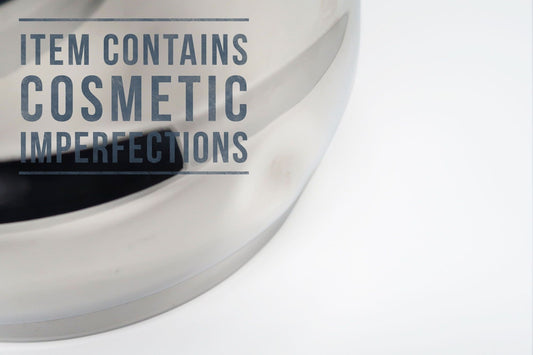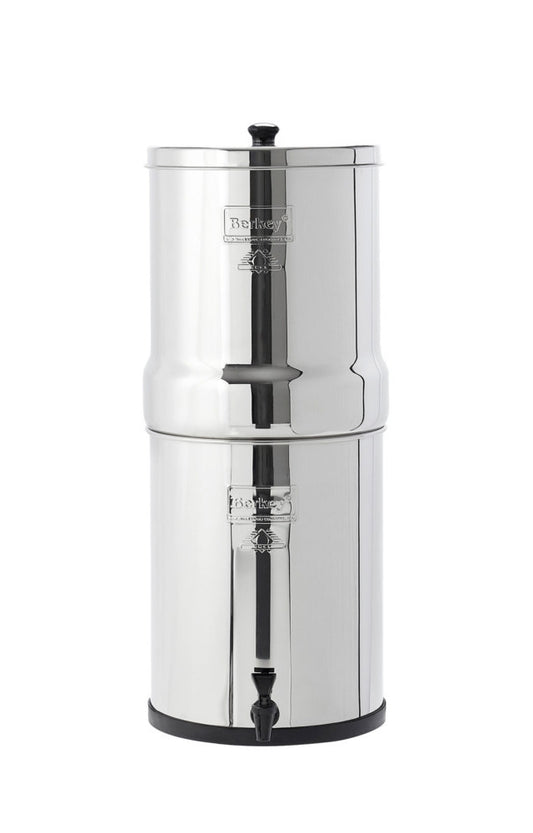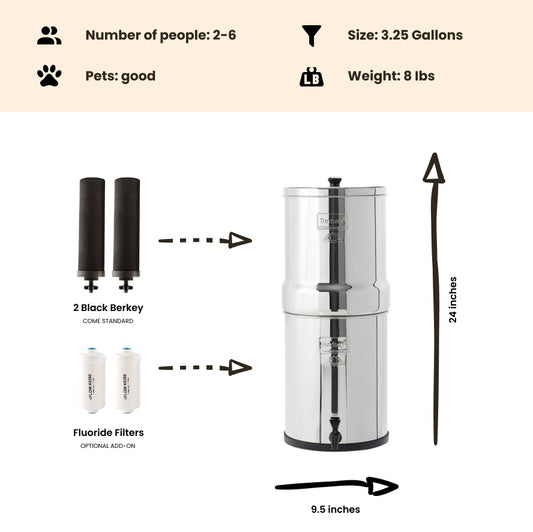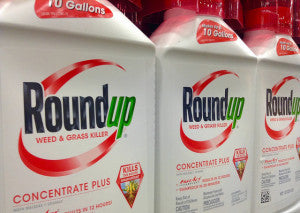
Safety Standards of Common Herbicide Chemical (glyphosate) Urgently Need to be Reviewed
By Dan DeBaunShare
Glyphosate — a chemical that is used in many weedkillers and also that the Black Berkey Filters remove — may be detrimental to environmental and public health, and the safety standards regarding its usage are in urgent need of review, a new study suggests.
According to the authors of the study, which was recently published online in the Journal of Epidemiology & Community Health, the current standards are outdated and urgently need to be reviewed, taking cognizance of new scientific findings to address potential health risks the public may face when exposed to these hazardous chemicals.

The European Chemicals Agency recently gave glyphosate the green light, ruling that is was not associated with an increased risk of cancer in humans. This outcome will strongly influence the European Commission's decision on whether or not to allow the use of this chemical once again.
Back home in the United States, the use of glyphosate has rapidly increased over the last twenty years, with it currently being the most commonly used weedkiller across the country. Furthermore, global estimates of glyphosate use suggest that in 2014 alone, the amount of glyphosate used equated to around half a kilogram being sprayed on every one hectare of crops grown around the entire world.
Glyphosate is used to kill weeds before planting crops and to control their regrowth after crops are planted. It is also applied to help induce the natural drying process of seeds before they are harvested. Chemical residues have been found in various crops, including barley, wheat, soybeans as well as a variety of other food crops. Herbicides can also leach through soils to into groundwater and aquifers or wash into surface waters with runoff, where they can potentially contaminate drinking water sources.
However, according to the authors, the scientific evidence used in support of the current US safety standards is based on research that was conducted over thirty years ago, and which was not subjected to the peer review process. Since then new studies have been conducted on glyphosate, with over 1500 studies being published in the last ten years alone.
"It is incongruous that safety assessments of the most widely used herbicide on the planet rely largely on fewer than 300 unpublished, non-peer reviewed studies while excluding the vast modern literature on glyphosate effects," the authors point out.
Yet, despite its rapid expansion in use, there is currently no method of monitoring glyphosate levels in humans and very few studies have assessed the potential health risks to humans.
However, recent studies conducted on animals suggest that low doses of glyphosate may be associated with an increased risk of damage to organs such as the kidney, liver and eyes, as well as the cardiovascular system. There is still some debate as to whether glyphosate can potentially disrupt hormone functioning or whether it poses and increased cancer risk.
According to the authors, "weed-killers, which combine glyphosate with other 'so-called inert ingredients,' may be even more potent. But these mixtures are regarded as commercially sensitive by the manufacturers and are therefore not available for public scrutiny."
The researchers are calling for:
- Improved monitoring of glyphosate (and glyphosate metabolite) levels in humans.
- Applying modern technology and testing methods to risk assessment of glyphosate and other combination herbicides.
- Research focusing on the health impact of occupation exposure to glyphosate (e.g. Agricultural workers, workers in manufacturing plants, as well as the impact on pregnant women and their infants).
- An evaluation of commercial combination herbicides that contain glyphosate.
"After a review of all evaluations, we conclude that the current safety standards are outdated and may fail to protect public health and the environment," the researchers conclude.
The black berkey filters that come standard with all our Berkey water filter systems will remove at least 75% of the glysophate in the water. (Removal results most likely much higher, however lab testing equipment not sensitive enough to test to smaller lower removal limits.)
Journal Reference
Vandenberg LN, Blumberg B, Antoniou MN, et al. Is it time to reassess current safety standards for glyphosate-based herbicides? J Epidemiol Community Health. Published Online First: 20 March 2017. doi: 10.1136/jech-2016-208463
-
Regular price From $302.00 USDRegular priceUnit price / per
-
Regular price $234.00 USDRegular priceUnit price / per
-
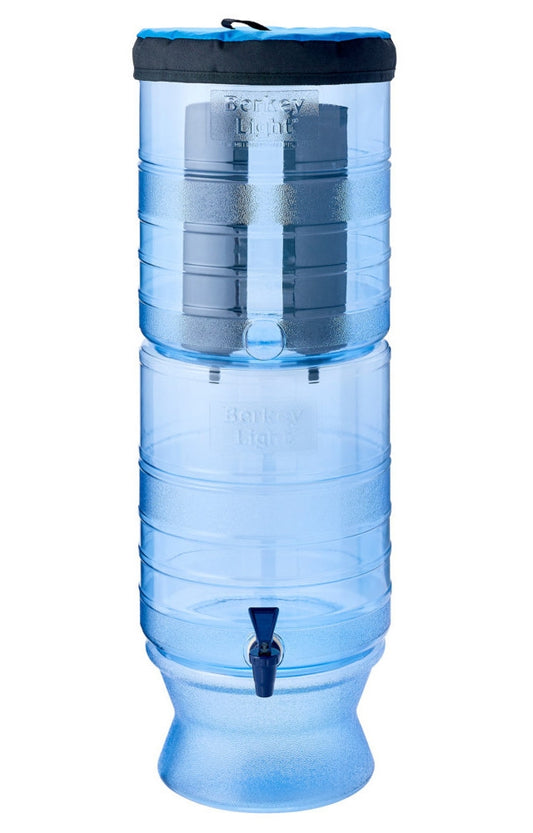
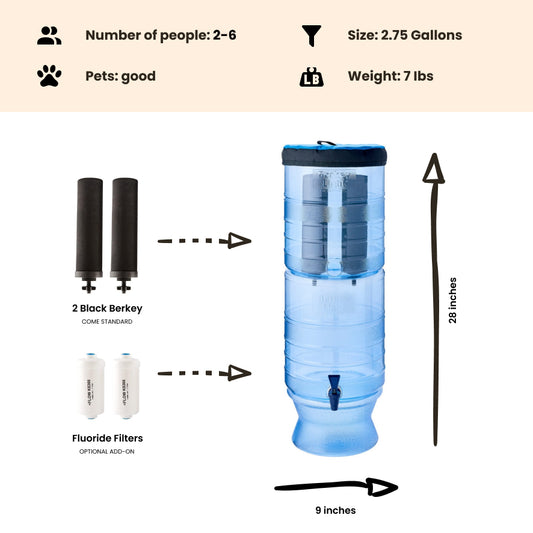 Sold outRegular price From $305.00 USDRegular priceUnit price / per
Sold outRegular price From $305.00 USDRegular priceUnit price / per -
Regular price $327.00 USDRegular priceUnit price / per
-
Regular price From $367.00 USDRegular priceUnit price / per
-
Regular price From $408.00 USDRegular priceUnit price / per
-
Regular price From $451.00 USDRegular priceUnit price / per

Dan DeBaun
Dan DeBaun is the owner and operator of Big Berkey Water Filters. Prior to Berkey, Dan was an asset manager for a major telecommunications company. He graduated from Rutgers with an undergraduate degree in industrial engineering, followed by an MBA in finance from Rutgers as well. Dan enjoys biohacking, exercising, meditation, beach life, and spending time with family and friends.
~ The Owner of Big Berkey Water Filters


